Books to read and reread
Discover the ultimate list of books to read and reread—timeless classics, must-read favorites, and unforgettable stories worth revisiting. Find your next great read today!
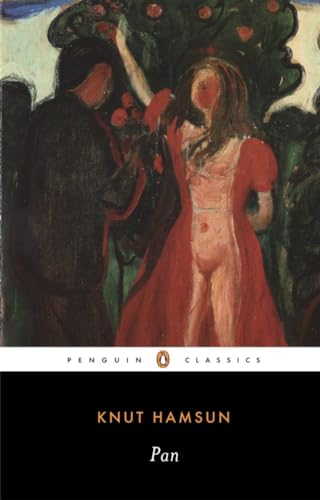

Book
Wittgenstein's Mistress
by David Markson
Wittgenstein's Mistress is a novel unlike anything David Markson or anyone else has ever written before. It is the story of a woman who is convinced and, astonishingly, will ultimately convince the reader as well that she is the only person left on earth. Presumably she is mad. And yet so appealing is her character, and so witty and seductive her narrative voice, that we will follow her hypnotically as she unloads the intellectual baggage of a lifetime in a series of irreverent meditations on everything and everybody from Brahms to sex to Heidegger to Helen of Troy. And as she contemplates aspects of the troubled past which have brought her to her present state--obviously a metaphor for ultimate loneliness--so too will her drama become one of the few certifiably original fictions of our time. "The novel I liked best this year," said the Washington Times upon the book's publication; "one dizzying, delightful, funny passage after another . . . Wittgenstein's Mistress gives proof positive that the experimental novel can produce high, pure works of imagination."

Book
Nausea
by Jean-Paul Sartre
Presents Jean-Paul Sartre's existentialist novel, first published in 1938, in which Antoine Roquentin, a French writer, chronicles his reactions to the world and people around him, which combine to give him an overpowering feeling of nausea.


Book
The Radetzky March
by Joseph Roth
The Radetzky March, Joseph Roth's classic saga of the privileged von Trotta family, encompasses the entire social fabric of the Austro-Hungarian Empire just before World War I. The author's greatest achievement, The Radetzky March is an unparalleled portrait of a civilization in decline, and as such a universal story for our times.

Book
The Stranger
by Albert Camus
With the intrigue of a psychological thriller, The Stranger—Camus's masterpiece—gives us the story of an ordinary man unwittingly drawn into a senseless murder on an Algerian beach. With an Introduction by Peter Dunwoodie; translated by Matthew Ward. Behind the subterfuge, Camus explores what he termed "the nakedness of man faced with the absurd" and describes the condition of reckless alienation and spiritual exhaustion that characterized so much of twentieth-century life. “The Stranger is a strikingly modern text and Matthew Ward’s translation will enable readers to appreciate why Camus’s stoical anti-hero and devious narrator remains one of the key expressions of a postwar Western malaise, and one of the cleverest exponents of a literature of ambiguity.” –from the Introduction by Peter Dunwoodie First published in 1946; now in translation by Matthew Ward.

Book
Wittgenstein's Nephew
by Thomas Bernhard
It is 1967, in a Viennese hospital. In separate wards: the narrator named Thomas Bernhard, is stricken with a lung ailment; his friend Paul, nephew of Ludwig Wittgenstein, is suffering fom one of his periodic bouts of madness. Bernhard traces the growth of an intense friendship between two eccentric, obsessive men who share a passion for music, a strange sense of humor, brutal honesty, and a disgust for bourgeois Vienna. "[Wittgenstein's Nephew is] a meditative fugue for mad, brilliant voices on the themes of death, death-in-life and the artist's and thinker's role in society . . . oddly moving and funny at the same time."—Joseph Coates, Chicago Tribune "Mr. Bernhard's memoir about Paul Wittgenstein is a 'confession and a guilty homage to their friendship; it takes the place of the graveside speech he never delivered. In its obsessive, elegant rhythms and narrative eloquence, it resembles a tragic aria by Richard Strauss. . . . This is a memento mori that approaches genius.'"—Richard Locke, Wall Street Journal

Book
Zeno's Conscience
by Italo Svevo
Long hailed as a seminal work of modernism in the tradition of Joyce and Kafka, and now available in a supple new English translation, Italo Svevo’s charming and splendidly idiosyncratic novel conducts readers deep into one hilariously hyperactive and endlessly self-deluding mind. The mind in question belongs to Zeno Cosini, a neurotic Italian businessman who is writing his confessions at the behest of his psychiatrist. Here are Zeno’s interminable attempts to quit smoking, his courtship of the beautiful yet unresponsive Ada, his unexpected–and unexpectedly happy–marriage to Ada’s homely sister Augusta, and his affair with a shrill-voiced aspiring singer. Relating these misadventures with wry wit and a perspicacity at once unblinking and compassionate, Zeno’s Conscience is a miracle of psychological realism.

Book
A Hero of Our Time
by Mikhail Lermontov
In its adventurous happenings–its abductions, duels, and sexual intrigues–A Hero of Our Time looks backward to the tales of Sir Walter Scott and Lord Byron, so beloved by Russian society in the 1820s and ’30s. In the character of its protagonist, Pechorin–the archetypal Russian antihero–Lermontov’s novel looks forward to the subsequent glories of a Russian literature that it helped, in great measure, to make possible. This edition includes a Translator’s Foreword by Vladimir Nabokov, who translated the novel in collaboration with his son, Dmitri Nabokov.

Book
To the Lighthouse
by Virginia Woolf
The novel that established Virginia Woolf as a leading writer of the twentieth century, To the Lighthouse is made up of three powerfully charged visions into the life of one family living in a summer house off the rocky coast of Scotland. As time winds its way through their lives, the Ramseys face, alone and simultaneously, the greatest of human challenges and its greatest triumph-the human capacity for change. A moving portrait in miniature of family life, it also has profoundly universal implications, giving language to the silent space that separates people and the space that they transgress to reach each other.

Book
The Waves
by Virginia Woolf
One of Woolf's most experimental novels, The Waves presents six characters in monologue - from morning until night, from childhood into old age - against a background of the sea. The result is a glorious chorus of voices that exists not to remark on the passing of events but to celebrate the connection between its various individual parts.
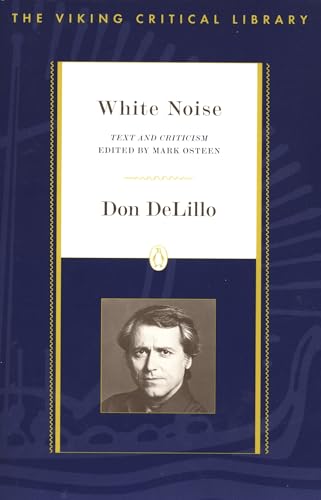
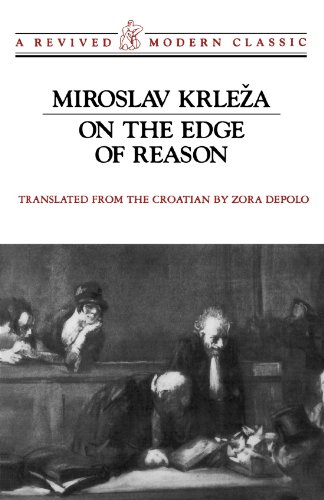

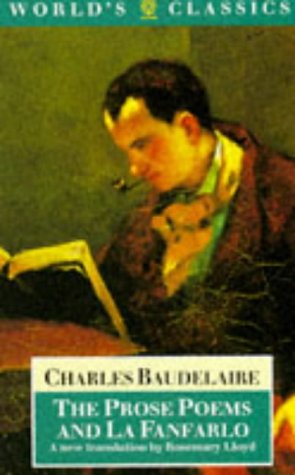


Book
Invisible Man
by Ralph Ellison
NATIONAL BOOK AWARD WINNER • NATIONAL BESTSELLER • In this deeply compelling novel and epic milestone of American literature, a nameless narrator tells his story from the basement lair of the Invisible Man he imagines himself to be. One of The Atlantic’s Great American Novels of the Past 100 Years He describes growing up in a Black community in the South, attending a Negro college from which he is expelled, moving to New York and becoming the chief spokesman of the Harlem branch of "the Brotherhood," before retreating amid violence and confusion. Originally published in 1952 as the first novel by a then unknown author, it remained on the bestseller list for sixteen weeks and established Ralph Ellison as one of the key writers of the century. The book is a passionate and witty tour de force of style, strongly influenced by T.S. Eliot's The Waste Land, James Joyce, and Dostoevsky.
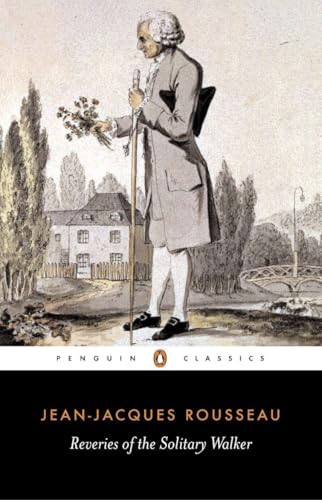

Book
Homo Faber
by Max Frisch
Loneliness and despair invade the world of an engineer who comes to realize that he has failed as a friend, husband, and father.

Book
The Unbearable Lightness of Being
by Milan Kundera
A young woman in love with a man torn between his love for her and his incorrigible womanizing; one of his mistresses and her humbly faithful lover—these are the two couples whose story is told in this masterful novel. In a world in which lives are shaped by irrevocable choices and by fortuitous events, a world in which everything occurs but once, existence seems to lose its substance, its weight. Hence, we feel "the unbearable lightness of being" not only as the consequence of our pristine actions but also in the public sphere, and the two inevitably intertwine.

Book
If on a Winter's Night a Traveler
by Italo Calvino
Italo Calvino's classic, multifaceted novel about writing and readers.

Book
A Portrait of the Artist as a Young Man
by James Joyce
James Joyce's coming-of-age story, a tour de force of style and technique The first, shortest, and most approachable of James Joyce’s novels, A Portrait of the Artist as a Young Man portrays the Dublin upbringing of Stephen Dedalus, from his youthful days at Clongowes Wood College to his radical questioning of all convention. In doing so, it provides an oblique self-portrait of the young Joyce himself. At its center lie questions of origin and source, authority and authorship, and the relationship of an artist to his family, culture, and race. Exuberantly inventive in style, the novel subtly and beautifully orchestrates the patterns of quotation and repetition instrumental in its hero’s quest to create his own character, his own language, life, and art: “to forge in the smithy of my soul the uncreated conscience of my race.” This Penguin Classics edition is the definitive text, authorized by the Joyce estate and collated from all known proofs, manuscripts, and impressions to reflect the author’s original wishes. For more than seventy years, Penguin has been the leading publisher of classic literature in the English-speaking world. With more than 1,700 titles, Penguin Classics represents a global bookshelf of the best works throughout history and across genres and disciplines. Readers trust the series to provide authoritative texts enhanced by introductions and notes by distinguished scholars and contemporary authors, as well as up-to-date translations by award-winning translators.

Book
The Complete Stories
by Franz Kafka
The complete stories of one of the greatest writers of the twentieth century, the author of The Metamorphosis and The Trial. “An important book, valuable in itself and absolutely fascinating. The stories are dreamlike, allegorical, symbolic, parabolic, grotesque, ritualistic, nasty, lucent, extremely personal, ghoulishly detached, exquisitely comic, numinous, and prophetic.” —The New York Times The Complete Stories brings together all of Kafka’s stories, from the classic tales such as “The Metamorphosis,” “In the Penal Colony,” and “A Hunger Artist” to shorter pieces and fragments that Max Brod, Kafka’s literary executor, released after Kafka’s death. With the exception of his three novels, the whole of Kafka’s narrative work is included in this volume. “[Kafka] spoke for millions in their new unease; a century after his birth, he seems the last holy writer, and the supreme fabulist of modern man’s cosmic predicament.” —from the Foreword by John Updike

Book
Under the Volcano
by Malcolm Lowry
It is the Day of Death and the fiesta is in fullswing. Geoffrey Firmin, H.M. ex-consul, is drowning himself in liquor and mescal, while his ex-wife and half brother look on, powerless to help him. As the day wears on, it becomes apparent that Geoffrey must die.

Book
The Idiot
by Fyodor Dostoyevsky
Revealing Dostoevsky's acute artistic sense and penetrating psychological insight, this new translation is meticulously faithful to the original.